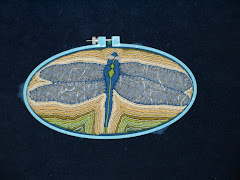As a 2008 volunteer, I get mailings from Obama for America.
Last week, the mailing envelope was a 12x18-inch poster headlined: CHANGE IS.
Beneath that was a black and white portrait of President Obama. And under the photo was a list of eleven accomplishments. They included:
Equal Pay for Equal Work
Saving the U.S. auto industry
Credit card reform
Hate Crimes Prevention Act
Affordable Care Act
Student loan reform
Wall Street reform
Middle-class tax cuts
Repeal of “Don’t Ask, Don’t Tell”
Raising fuel efficiency standards
Ending the war in Iraq
Since I track the president’s record, I’d add the destruction of Al-Quaida and its leader Osama Bin Laden.
Overall, the list just hits the highlights.
How many items were you aware of? How many of these items have made a difference in your life? I’d venture a guess that most of us have seen benefits from almost all of them, whether we’ll admit it or not.
Unfortunately, our mainstream corporate media has failed to cover the actual policies this administration has championed – mainly because they do not overwhelmingly benefit corporate media owners’ interests. Citizen ignorance is their friend.
Why? If you do not understand the Affordable Care Act, maybe you won’t support it – even though it allows your college graduate to stay on your insurance plan while he or she searches for a job.
If you’re ignorant, you won’t support it even though now your insurer can’t cut you off when you hit a certain dollar amount spent to cover your pre-existing condition. Ignorance will allow you to oppose it despite the fact your premiums would have increased more drastically had ACA not been passed.
The fact is that with a higher number of U.S. citizens insured, many of them healthy young people, ACA is already bending the cost curve down. But even with ACA, we’re barely making a dent in rising healthcare costs. We could more effectively control costs and care for people with either a single payer system (like Medicare) or socialized medicine (like the Veteran’s Administration), both of which could be expanded.
Yet, as journalist Chris Hedges points out in a recent column on healthcare, “. . . as long as corporations determine policy, as long as they can use their money to determine who gets elected and what legislation gets passed, we remain hostages.”
Plenty of people I’ve met are also unaware President Obama cut middle class taxes during the worst of the recession. Media didn’t report it that way; instead they reported he wants to “raise taxes,” even though he only wants to raise tax rates on wealthy individuals and large multinational corporations. He’s also decreased the deficit and cut more government spending than his predecessor.
This president has a long list of accomplishments, but listening to media reports you’d think we have seen no change. Where is this “liberal media bias” I hear about?
I’ve said it before, and I’ll say it again -- the first step to deciding who to vote for is to do your homework. Quit voting on emotion, turn off the TV and radio, and read. And know who pays for your sources. Otherwise you’re just a cog in the corporate machine, and nothing will change.
Because change is not just up to the president; it comes down to us.
Tuesday, April 17, 2012
Tuesday, April 3, 2012
Do we fear the wrong things?
Do we fear the wrong things?
The killing of Trayvon Martin, an African American youth on an errand to buy candy for his little brother in Sanford, Florida, opens up many questions, mostly about what we fear. And does our fear make us vulnerable to other dangers?
I ask because Martin’s death spotlights Florida’s Stand Your Ground Law, which allows anyone who feels threatened to use deadly force. In other words, fear rules. Some version of this law has been passed in 16 states and debated in even more.
Yet I wonder if it’s in the public interest to have an armed populace. Are we safer? And if a family member is killed, you may watch helplessly, just like Martin’s family, as this law allows the killer to walk free without charges or even an investigation.
In addition, the law is based on model legislation, called the Castle Doctrine Act and developed by the American Legislative Exchange Council (ALEC). ALEC is a secretive corporate-financed organization (Think Koch brothers, Exxon Mobil, and not coincidentally, the National Rifle Association.) that writes corporate-friendly legislation and pushes it through state legislatures nationwide.
The Center for Media and Democracy has done extensive research to expose the work of this influential organization. You can view their work at: http://alecexposed.org/wiki/ALEC_Exposed (Check their list of ALEC politicians for your federal and state representatives.)
Are groups like ALEC using our fears to manipulate us? Fear, or any strong emotion, causes humans to stop thinking and react irrationally. When that happens, we are easily led . . . or misled.
For example, do you fear the government? But in America, aren’t we, ultimately, the government? Don’t we elect and monitor our representatives? Or have we abandoned the process and let corporate and special interests take over without a fight?
Which leads me to ask who really benefits from the Stand Your Ground Law and these other corporate-written model bills? Are they being written as part of some corporate business plan to increase market share and corner public contracts?
For example, will the Stand Your Ground Law help gun dealers and manufacturers sell more guns? Another irony of the Trayvon Martin case is the kerfuffle by Geraldo Rivera over Martin’s hoodie. If, as Rivera claims, only crooks and thugs wear hoodies, why does the NRAstore.com sell a Concealed Carry Hooded Sweatshirt? Check it out for yourself at: http://www.nrastore.com/nrastore/ProductDetail.aspx?c=11&p=CO+635&ct=e
Instead of fearing the young black man or the non-English speaker or the stranger in our community, maybe we should be paying closer attention to the legislation being passed as law in state capitals. Perhaps we should be reading the bills our representatives are debating and demanding our newspapers, TV and radio stations report on the substance of said bills. Maybe we should be looking at where our elected officials get their campaign contributions.
Instead of parking in front of our TV sets, maybe we should be meeting on our front porches and talking. Instead of watching The Bachelor and YouTube videos, maybe we should be reading books, especially history, and daily newspapers or news sites. And we should definitely be asking lots of questions.
Instead of running into our separate corners in fear, we should be meeting and sharing information. Because as the saying goes, “United we stand, divided we fall.”
The killing of Trayvon Martin, an African American youth on an errand to buy candy for his little brother in Sanford, Florida, opens up many questions, mostly about what we fear. And does our fear make us vulnerable to other dangers?
I ask because Martin’s death spotlights Florida’s Stand Your Ground Law, which allows anyone who feels threatened to use deadly force. In other words, fear rules. Some version of this law has been passed in 16 states and debated in even more.
Yet I wonder if it’s in the public interest to have an armed populace. Are we safer? And if a family member is killed, you may watch helplessly, just like Martin’s family, as this law allows the killer to walk free without charges or even an investigation.
In addition, the law is based on model legislation, called the Castle Doctrine Act and developed by the American Legislative Exchange Council (ALEC). ALEC is a secretive corporate-financed organization (Think Koch brothers, Exxon Mobil, and not coincidentally, the National Rifle Association.) that writes corporate-friendly legislation and pushes it through state legislatures nationwide.
The Center for Media and Democracy has done extensive research to expose the work of this influential organization. You can view their work at: http://alecexposed.org/wiki/ALEC_Exposed (Check their list of ALEC politicians for your federal and state representatives.)
Are groups like ALEC using our fears to manipulate us? Fear, or any strong emotion, causes humans to stop thinking and react irrationally. When that happens, we are easily led . . . or misled.
For example, do you fear the government? But in America, aren’t we, ultimately, the government? Don’t we elect and monitor our representatives? Or have we abandoned the process and let corporate and special interests take over without a fight?
Which leads me to ask who really benefits from the Stand Your Ground Law and these other corporate-written model bills? Are they being written as part of some corporate business plan to increase market share and corner public contracts?
For example, will the Stand Your Ground Law help gun dealers and manufacturers sell more guns? Another irony of the Trayvon Martin case is the kerfuffle by Geraldo Rivera over Martin’s hoodie. If, as Rivera claims, only crooks and thugs wear hoodies, why does the NRAstore.com sell a Concealed Carry Hooded Sweatshirt? Check it out for yourself at: http://www.nrastore.com/nrastore/ProductDetail.aspx?c=11&p=CO+635&ct=e
Instead of fearing the young black man or the non-English speaker or the stranger in our community, maybe we should be paying closer attention to the legislation being passed as law in state capitals. Perhaps we should be reading the bills our representatives are debating and demanding our newspapers, TV and radio stations report on the substance of said bills. Maybe we should be looking at where our elected officials get their campaign contributions.
Instead of parking in front of our TV sets, maybe we should be meeting on our front porches and talking. Instead of watching The Bachelor and YouTube videos, maybe we should be reading books, especially history, and daily newspapers or news sites. And we should definitely be asking lots of questions.
Instead of running into our separate corners in fear, we should be meeting and sharing information. Because as the saying goes, “United we stand, divided we fall.”
Labels:
ALEC,
Koch brothers,
Stand your Ground,
Trayvon Martin
Subscribe to:
Posts (Atom)








